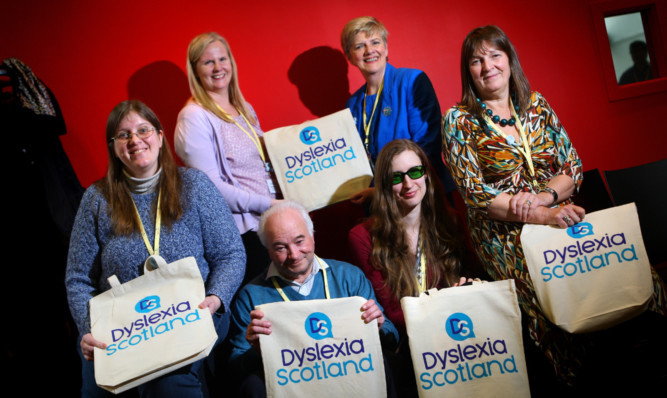Pupils with dyslexia face a postcode lottery when it comes to support for their condition, a major conference in Dundee was told.
Around one in 10 children suffer from the condition, which affects a person’s ability to read, write and sometimes speak.
The lifelong condition can also impair someone’s ability to follow instructions.
Nearly 300 people attended Dyslexia Scotland’s annual conference in Dundee University’s Dalhousie Building on Saturday.
The charity’s chief executive, Cathy Magee, said raising awareness of the condition is vital to ensuring those with it are not left behind or wrongly identified as troublemakers by teachers.
She said: “Support is variable, even within local authority areas, but is improving.
“One school can be very good while another five minutes away does not do as well.”
Ms Magee said around 10% of the population suffers from dyslexia to varying degrees.
“Around one in 10 have dyslexia so in a class of 30 there will be three people with it. Of that one in 10, one in four will be severely dyslexic one in every 40 children.”
She said that early diagnosis is key for dyslexics but that even those who are not diagnosed until later many are not identified until high school can have their lives transformed.
“It’s a lightbulb moment and they find something that helps them for the first time. You’ll hear again and again people saying they thought they were stupid, not understanding that they just learn differently,” Ms Magee added.
Keynote speaker Margaret Crankshaw said schools are now working to identify dyslexic pupils at an earlier age to ensure they do not fall behind in their studies.
The education psychologist said: “Dyslexia friendly schools are working towards becoming inclusive and holistic, engaging all members of the school community to support children at risk of literacy failure in imaginative, effective and pupil centred ways.
“Inclusive good practice is embedded in everyday classroom awareness, attitudes, resources and the organisation of learning.
“Children and parents are closely involved in the process through focus groups, workshops, assemblies and training. Planned outcomes include earlier identification and implementation of strategies for children at risk, reduced emotional impact of perceived failure, effective partnership with parents, and improved literacy attainment.”
David Watt, senior education officer at Education Scotland, said: “Education Scotland is really pleased to continue the good partnership working with practitioners and Dyslexia Scotland on our shared agenda of improving outcomes for children and young people with dyslexia.”
